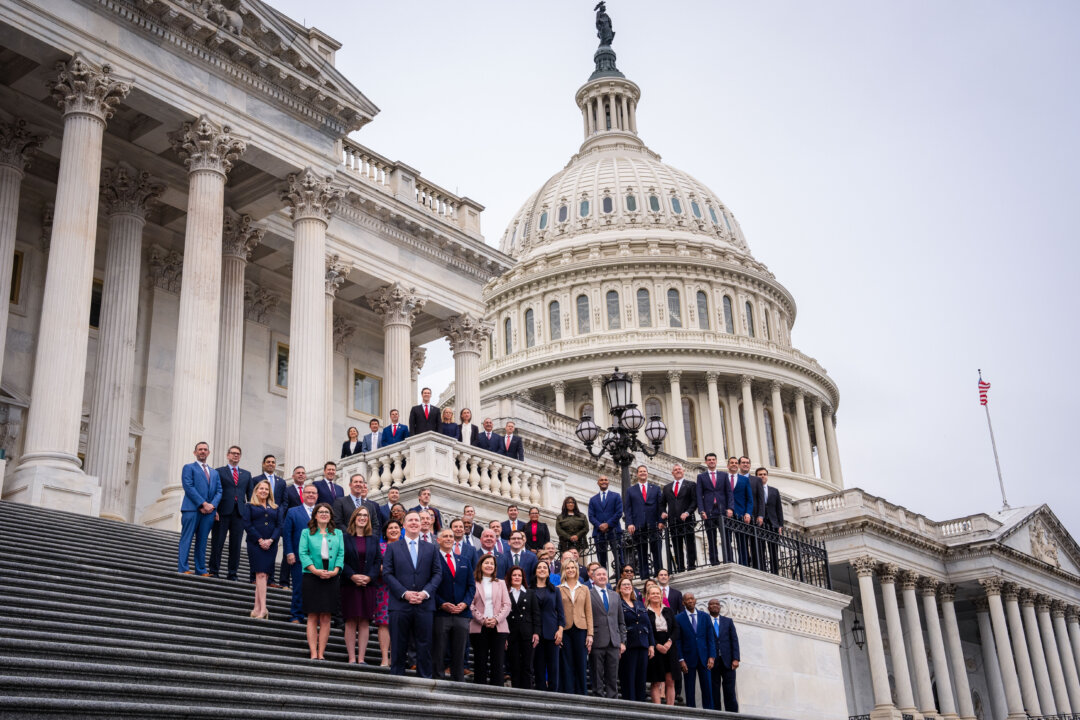WASHINGTON—The recent announcements by President-elect Donald Trump that he would nominate former Reps. Matt Gaetz (R-Fla.) and Tulsi Gabbard (R-Hawaii), as well as Fox News host Pete Hegseth, to key national security positions in his Cabinet have elicited mixed reactions from House lawmakers.
Trump announced on Nov. 13 that he would nominate Gaetz to be the attorney general of the United States, who heads the Department of Justice and oversees many federal law enforcement activities. Gabbard was also announced that day as Trump’s pick for director of national intelligence, a cabinet-level office that leads the U.S. intelligence community. Hegseth will be nominated as the secretary of defense, who will oversee the U.S. military.
Responses to the picks have generally been partisan, with praise from Republicans and opposition from Democrats, who, along with some Republicans, have taken issue with the nominees’ qualifications to lead the portfolios.
“If he were looking for people, he could have found far better individuals to fill those positions,” Rep. Bennie Thompson (D-Miss.) told The Epoch Times on Nov. 14.
Many Republicans, by contrast, praised them. “You don’t have to question whether or not they’re going to shake things up, and kind of turn those departments upside down, and make a lot of significant changes—and that’s what we need,” Rep. Ronny Jackson (R-Texas) told The Epoch Times on Nov. 13.
“[Gabbard’s] gonna be fantastic … I think Pete’s gonna be good too. He’s gonna definitely be an agent of change.”
For Rep. Max Miller (R-Ohio), Gaetz was an issue. “I mean, I trust President Trump and who he picks into certain positions. There’s just been one that no one is going to accept,” he told The Epoch Times on Nov. 13, referring to the president-elect’s pick for attorney general.
Meanwhile, some lawmakers have called for the House Ethics Committee to release its report about Gaetz.
Until his resignation on Nov. 13, which was shared by House Speaker Mike Johnson (R-La.) in response to a question from The Epoch Times, Gaetz was under investigation by the Ethics Committee concerning allegations of sex trafficking and sexual contact with a minor leveled against him. In 2019, Gaetz was investigated by the U.S. Department of Justice on these claims, though he was never prosecuted. His resignation means that the committee no longer has jurisdiction over the matter since it can’t investigate former lawmakers.
The chairman of the Ethics Committee, Rep. Michael Guest (R-Miss.), has said that the report would not be released. Many Democrats and some Republicans, including Sen. John Cornyn (R-Texas), have called for its disclosure.
“The public is entitled to know the full truth about that case,” Ritchie Torres (D-N.Y.) told The Epoch Times on Nov. 14, a sentiment that Thompson shared.
“They should release [it], but normally when a member resigns, usually it goes nowhere,” Rep. Shri Thanedar (D-Mich.) told The Epoch Times.
Johnson opposed its release, saying he was “going to strongly request that the Ethics Committee not issue the report, because that is not the way we do things in the House.”
“The rules of the House have always been that a former member is beyond the jurisdiction of the Ethics Committee,” Johnson told reporters on Nov. 15.
Rep. Ro Khanna (D-Calif.) expressed an openness to work with nominees who are confirmed by his Senate counterparts.
“I work with everyone where I can to advance the interests of the country,” Khanna told The Epoch Times. “They need to have the hearings in the Senate to be vetted.”
Over in the upper chamber, incoming Senate Majority Leader John Thune (R-S.D.) acknowledged on Nov. 15 that some of Trump’s more controversial nominees will face more difficult confirmation processes.
It’s possible that Trump could directly appoint certain nominees who face difficult nomination paths by “recess appointments,” whereby they are appointed during a recess of the Senate in a full, non-acting capacity for a term that lasts until the end of the Senate’s then-current session, which typically lasts two years.
Thune said recess appointments should happen if there is bipartisan opposition to a nominee, though he acknowledged that enough Republicans could join all Democrats in preventing a majority vote to recess.
“You have to have all Republicans vote to recess, as well. So the same Republicans … that might have a problem voting for somebody under regular order probably also has a problem voting to put the Senate in the recess,” Thune said on Fox News.

